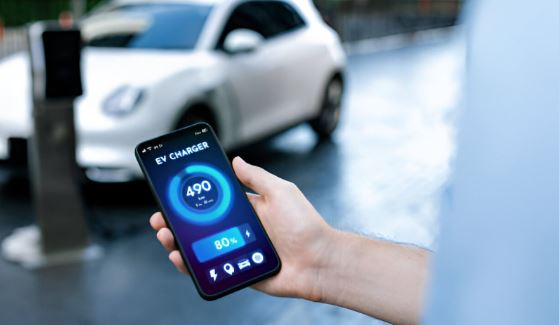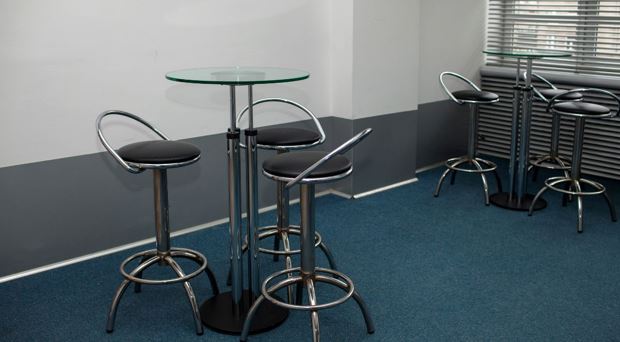West Virginia Cannabis Laws: Everything You Need to Know
With the passage of Senate Bill 386 on April 19, 2017, West Virginia became the 29th state to legalize medical cannabis for patients who have a medical marijuana recommendation written by a certified MMJ doctor. The bill established the West Virginia Medical Cannabis Act and was signed into law by Governor Jim Justice.
Four years later, in November 2021, the state’s first medical marijuana dispensary opened, offering patients cannabis for medical purposes.
This post breaks down important laws pertaining to cannabis dispensaries in West Virginia.
West Virginia Marijuana Laws: A Quick Overview
- WV medical marijuana is governed by the Office of Medical Cannabis.
- In West Virginia, it is illegal to consume edibles.
- West Virginia has not decriminalized cannabis, and it is a misdemeanor to possess any amount of it.
- Patients can buy as much cannabis as they need for 30 days.
- A school cannot have a dispensary within 1,000 feet of it.
- 10% of the gross receipts from each reporting quarter are taxed to medical marijuana organizations.
- West Virginia’s cannabis track and trace program is called Metrc.
1. Lawful Medical Cannabis Use
Who is eligible to buy and possess medical cannabis?
- A patient whose medical ID card is currently valid
- The official caregiver for a patient
- Two caregivers can be designated by patients to buy their medications.
Note: No more than five patients may be cared for by one caregiver at a time.
Only the following forms of medical marijuana may be dispensed by operators:
- Pills
- Oils
- Topicals (gels, creams, or lotions)
- Tincture
- Liquid
- Dermal patches
Note: West Virginia does not allow edibles.
Rules for packaging and disposal:
- Products containing medical marijuana that are not used must remain in their original packaging.
- The name of the grower or processor, the dispensary, the particular form and species, and the percentage of THC and CBD must all be properly labeled on all products.
2. Applications and permits
Applicants for cannabis businesses need to fill out the following:
- Verification and job descriptions of all the company’s main owners, including investors and staff
- Fingerprints of each employee and a criminal background check
- An explanation of the planned business operations of the organization
- Evidence that the organization is authorized to use the land, buildings, and equipment for licensing activities or that it can swiftly acquire authorization to do so
- A strategy for product control and security on that property
Fees for growers and processors to apply:
- Not refundable $5,000 for the initial application
- A $50,000 permit fee is paid at the time of application and is refunded in the event that the applicant is not approved. If a permit is issued, it will remain in effect for a year.
- If the permit is not renewed, the $5,000 renewal fee per location is refunded.
- Four to six months prior to the permit’s expiration, renewals must be submitted.
- A check or money order should be used to cover all fees.
Application fees for dispensaries:
- Not refundable $2,500 for the initial application
- $10,000 is paid for each location at the time of application; this money is returned if the applicant is not approved for a permit. If a permit is issued, it will remain in effect for a year.
- All locations must pay a $2,500 permit renewal fee, which is refundable if the permit is not renewed.
- After the application is submitted, it costs $250 to make changes.
The following details are needed for license renewals:
- Any significant modifications to the initially supplied information
- Any accusation or investigation of theft, loss, or diversion that has been started, is ongoing, or has been completed
- Information adherence to state law
- If rejected, renewal applicants have 30 days to request a hearing, provide more documentation, or do both.
The bureau considers the following when choosing permits:
- Enough space, amenities, and equipment
- Interest of the public
- Capacity to establish and uphold security, monitoring, and documentation
- Location
- People in the region
- The quantity of patients with serious health issues
- The kinds of severe illnesses
- Availability of public transit
- Local health departments’ approval
- Whether a grower, processor, or dispensary has been prohibited by the county
- Anything else the bureau thinks is important
3. Dispensing Medical Cannabis to Patients and Caregivers
For every transaction, verified patients or caregivers must obtain a receipt that contains the following information:
- Name, address, and ID number of the dispensary
- The patient’s and caregiver’s names and addresses
- Purchase date
- Any specifications, including restrictions, that practitioners may have about the kind of product.
- The type and amount of medicinal cannabis that was administered
For the bureau to keep track of receipt information, it must be electronically recorded. Dispensaries are not permitted to maintain electronic or physical records of patient medical certificate data.
Patients are not allowed to buy more cannabis than they need for 30 days, in an unapproved form, or in quantities above the limits set by their physician.
Before completing a transaction, a dispensary employee must confirm all patient and caregiver information.
Labels on packages must state:
- Details on a patient’s or caregiver’s receipt
- Dates of packaging and use-by
- Items must remain in their original packaging.
- Required warning statements that are precisely written according to the Act’s definition
- The species and percentages of THC and CBD in the products, as well as the number of individual doses included in the package
Labels are unable to include:
- A trademark that looks like food or drink
- False designs or artwork
- Any crest, seal, or insignia that could give the impression that it has been approved by a state, county, or local government.
- Cartoons, hues, or pictures that could be appealing to kids
The facilities needed for a dispensary are as follows:
- The only places in the state where a dispensary is permitted to sell medical cannabis are indoor, enclosed, and secure facilities.
- The dispensary and a growing or processing facility cannot be located on the same property.
- No dispensary facility may be located within 1,000 feet of a public, private, educational, or childcare facility.
- Paraphernalia for medical cannabis use can be sold by medical dispensaries.
- A copy of the dispensary’s permit must be prominently displayed for patients, caregivers, law enforcement, and bureau agents.
4. Essential Security and Surveillance Requirements
A medical dispensary needs commercial-grade security and surveillance systems to keep people out. These systems include:
- 24/7 expert alarm monitoring
- Monitoring of every entrance and exit
- Monitoring of every room with windows, skylights, safes, storage spaces, and restricted access areas
- Any area where medical cannabis is loaded or unloaded is covered by surveillance with fixed cameras positioned five feet outside the building.
- A silent alert indicating that the user must shut down the system
- A robbery is underway, as indicated by a holdup alarm.
- An emergency panic alarm
- A gadget that can transmit a pre-recorded message to request law enforcement assistance
- An alarm failure notification system that notifies a security guard within five minutes
- Fire and smoke alarms
- A 48-hour power source to maintain surveillance and security systems during blackouts
- The capability of manually locking and unlocking doors in the event of an electrical malfunction
- Motion-detecting devices
- Records of surveillance must be stored by dispensaries in a locked cabinet or closet for a period of two years.
- An additional security alarm system that satisfies the same standards as the main alarm system and covers the storage of surveillance records
- Every year, a qualified vendor must test and inspect all systems, and documentation of the tests must be retained on site for four years.
- Dispensaries ought to designate a security guard to keep an eye on the surveillance.
Lock requirements:
- Commercial-grade doors and door locks that secure the building’s exterior are essential for dispensaries.
- Only authorized personnel are allowed to keep the keys or key codes to those doors.
- All facility entrances and exits should be locked during closed hours.
- Lighting must be sufficient for both surveillance and internal facility visibility.
- Only authorized individuals should be able to enter the dispensary’s locked security room, and the space should only be used for security.
5. Medical Cannabis Transportation
The following are the rules for transporting cannabis:
- The hours for cannabis transportation are 7 a.m. to 9 p.m.
- It is possible for dispensaries to employ a third-party delivery contractor.
- The state prohibits the export of medical cannabis.
- A GPS is required for dispensaries to monitor and guarantee delivery.
- To keep the product hidden from the outside, delivery trucks must have a lock box or locked cargo area.
- Delivery trucks are not allowed to display signs indicating that they are transporting cannabis.
- For perishable goods, delivery trucks ought to have a temperature-controlled solution.
- Delivery vehicles must display a current state inspection and registration, just like any other vehicle.
- Commercial insurance is required for delivery vehicles.
- Two people must work in delivery trucks; one of them must remain inside to safeguard the goods.
- Every delivery worker requires a gadget in order to connect to the dispensary.
- Every delivery worker needs to always carry their ID card and have a current driver’s license.
- Delivery drivers are only permitted to make scheduled deliveries.
- Any vehicle accidents, detours, or losses should be reported right away to the bureau by the dispensary.
- Every day, dispensaries must communicate via phone or email their delivery routes and times.
- Along the route or at the medical cannabis organization, the bureau or law enforcement may inspect delivery vehicles.
6. Taxes
10% of each reporting quarter’s gross receipts are taxed to medical marijuana organizations. This tax, called the privilege tax, is paid by the business and cannot be attributed to the patient.
The 20th day of January, April, July, and October for the previous calendar quarter is when the tax is due and electronically payable. The individual must file a tax return in the format specified by the Tax Commissioner when the tax payment is due.
Extra tax details:
- The Medical Cannabis Program Fund receives the quarterly tax revenue.
- Patients who are residents of Hurricane and own a Hurricane medical marijuana card are exempt from paying taxes, and neither municipal sales taxes nor excise taxes apply and same applies for other cities of West Virginia.
- If necessary, the Tax Commissioner may modify the emergency taxation regulations.



